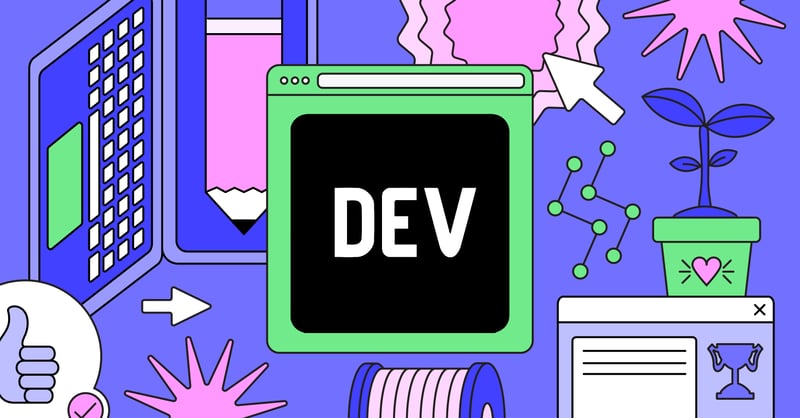
2024-6-21 05:55:19 Author: hackernoon.com(查看原文) 阅读量:8 收藏
As I work on various Go projects, I often find myself creating utility functions, extending existing packages, or developing packages to solve specific problems. Moving from one project to another, I usually have to copy or rewrite these solutions. So, I created
Let's look at some problems that these packages are solving.
There Are Many Functions That Always Return Nil Errors, but We Still Need to Check.
For example, let's take a look at this function using strings.Builderfrom the stdlib:
import "fmt"
import "strings"
func SliceToString1[T any](slice []T) string {
var b strings.Builder
for _, v := range slice {
_, err := fmt.Fprint(&b, v)
if err != nil {
panic(err)
}
}
return b.String()
)
func SliceToString2[T any](slice []T) (string, error) {
var b strings.Builder
for _, v := range slice {
_, err := fmt.Fprint(&b, v)
if err != nil {
return err
}
}
return b.String()
)
func SliceToString3[T any](slice []T) string {
var b strings.Builder
for _, v := range slice {
_, _ = fmt.Fprint(&b, v) //nolint:errcheck
}
return b.String()
)
- In
SliceToString1, we add a panic check on the string despite the fact thatstrings.Builderwill always return a nil error.
- In
SliceToString2, we correctly handle the returned error by making the caller worry about checking that never-happen error too!
- In
SliceToString3, we skip the check because they are nil anyway, but we still need to add_, _ =to make the IDE happy and//nolint:errcheckbecause our company blocks merging any PR that does not pass thegolint CI check .
In another way, we could create our utility functions to simplify the code, and then copy or write those fprint and must from
func SliceToString4[T any](slice []T) string {
var b strings.Builder
for _, v := range slice {
fprint(&b, v)
}
return b.String()
}
func fprint(w io.Writer, v any) {
must(fmt.Fprint(w, v))
}
func must[T any](v T, err error) T {
if err != nil {
panic(err)
}
return v
}
Import “ezpkg.io/stringz”
Here is how the example is rewritten with stringz.Builder:
import "ezpkg.io/stringz"
func SliceToString[T any](slice []T) string {
var b stringz.Builder // change to stringz
for _, v := range slice {
b.Print(v) // look ma, no error!🔥
}
return b.String()
}
Other examples are bytez.Buffer and fmtz.State. They WriteString and its sister WriteStringZ:
package stringz // import "ezpkg.io/stringz"
type Builder strings.Builder
func (b *Builder) unwrap() *strings.Builder {
return (*strings.Builder)(b)
}
func (b *Builder) WriteString(s string) (int, error) {
return b.unwrap().WriteString(s)
}
func (b *Builder) WriteStringZ(s string) int {
n, _ := b.unwrap().WriteString(s)
return n
}
The WriteString method exposes the original method and keeps the same signature, while the WriteStringZ variant eliminates the need for handling errors. Writing Go code is eazier now!🥰
Sometimes, We Just Want to Skip All the Errors to Quickly Write a Simple CLI Script
By using typez.CoalesceX, errorz.Must, errorz.Skip, errorz.Validate, and their variants:
import "ezpkg.io/errorz"
func main() {
var err error
projectDir := os.Getenv("PROJECT_DIR")
errorz.Validatef(&err, projectDir != "", "no PROJECT_DIR")
errorz.Validatef(&err, len(os.Args) > 1, "must at least 1 arg")
// panic if any validation fails
errorz.MustZ(err)
// get the file path
fileName := os.Args[1] // already check: len(os.Args)>1
// panic if the file extension is not .json
errorz.MustValidate(strings.HasSuffix(fileName, ".json"))
// read the file, skip error if it does not exist
data := errorz.Skip(os.ReadFile(fileName))
// default to empty json object
data = typez.CoalesceX(data, []byte("{}"))
// process then print the formatted json
object := errorz.Must(process(data))
fmt.Print(errorz.Must(json.MarshalIndent(object, "", "\t")))
}
Comparing Values in Tests With Diff That Can Ignore Spaces
Another day, we are making some changes to a SQL repository method using
var updateSQL = `UPDATE "company_channels"
SET "updated_at"=$1,"access_token"=$2
WHERE ("company_id" = $3 AND "channel_code" = $4 AND "channel_type" = $5) AND "company_channels"."deleted_at" IS NULL`
dbCtrl.SQLMock.ExpectExec(regexp.QuoteMeta(updateSQL)).
WithArgs(
sqlmock.AnyArg(),
companyChannel.AccessToken,
companyChannel.CompanyID,
companyChannel.ChannelCode,
companyChannel.ChannelType,
).WillReturnResult(sqlmock.NewResult(0, 1))
And we are getting this error, which is hard to read and see what is wrong:
Import "ezpkg.io/diffz," and Rewrite the Assertion Function:
diffz.IgnoreSpace().DiffByChar(actualSQL, expectedSQL)
We can get a cleaner output and quickly spot the difference:
There Is Support for Tests With Random Values
With diffz.Placeholder().AndIgnoreSpaces().DiffByLine() or simply diffz.ByLineZ():
expect := `
color:
id: ████████-████-████-████-████████████
name: red
code: #ff0000`
red := `
color:
id: d56d5f0d-f05d-4d46-9ce2-af6396d25c55
name: red
code: #ff0000`
green := `
color:
id: 5b01ec0b-0607-446e-8a25-aaef595902a9
name: green
code: #00ff00`
fmt.Println("no diff")
fmt.Println(diffz.ByLineZ(red, expect))
fmt.Println("diff")
fmt.Println(diffz.ByLineZ(red, green))
The first diffz.ByLineZ(red, expect) will be considered equal, because of the use of a placeholder █. The second diffz.ByLineZ(red, green) will output:
ezpkg.io Is Still in Its Early Stage
Most packages are usable but the API may change over time. There are a lot of missing utilities that I will add sooner or later. If you need something, feel free to
I'm Oliver Nguyen. A software maker working mostly in Go and JavaScript. I enjoy learning and seeing a better version of myself each day. Occasionally spin off new open source projects. Share knowledge and thoughts during my journey.
如有侵权请联系:admin#unsafe.sh


